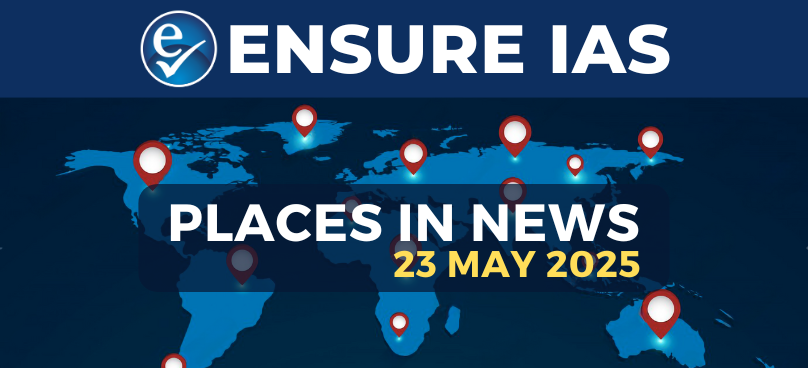- Courses
- GS Full Course 1 Year
- GS Full Course 2 Year
- GS Full Course 3 Year
- GS Full Course Till Selection
- Online Program
- GS Recorded Course
- NCERT (Recorded 500+ Hours)
- Polity Recorded Course
- Geography Recorded Course
- Economy Recorded Course
- AMAC Recorded Course
- Modern India, Post Independence & World History
- Environment Recoded Course
- Governance Recoded Course
- Science & Tech. Recoded Course
- International Relations and Internal Security Recorded Course
- Disaster Management Module Course
- Ethics Recoded Course
- Essay Recoded Course
- Current Affairs Recoded Course
- CSAT
- 5 LAYERED ARJUNA Mentorship
- Public Administration Optional
- ABOUT US
- OUR TOPPERS
- TEST SERIES
- FREE STUDY MATERIAL
- VIDEOS
- CONTACT US
The Rise of AI Washing: Misleading Consumers and the Need for AI Literacy
The Rise of AI Washing: Misleading Consumers and the Need for AI Literacy
22-04-2025

- With the increasing adoption and hype surrounding Artificial Intelligence (AI), several companies have been found to make misleading or exaggerated claims about their use of AI, a practice referred to as AI washing.
- This issue, where companies falsely claim or overstate their AI capabilities, misleads consumers and distorts their buying decisions.
What is AI Washing?
- AI washing refers to deceptive advertising practices that falsely claim the use of AI or exaggerate its capabilities.
- This practice is akin to greenwashing, where companies make unsubstantiated claims about environmental benefits.
- AI washing can have a serious impact on consumers by inflating their expectations and making them believe they are buying products or services that are powered by AI, even when they are not.
Examples of AI Washing
- E-Commerce Store: A well-known e-commerce entity advertised its physical stores as “AI-powered,” claiming customers could walk in, pick up groceries, and leave without queuing at the cashier.
- However, this claim was exaggerated, as the technology behind the store was not fully reliant on AI, misleading customers about the nature of the technology involved.
- Investment Advisory Firm: Another example involves an investment advisory firm claiming to use AI to predict market trends and make smarter investment decisions.
- However, it was later revealed that these claims were overstated, and no AI was actually involved in the decision-making process.
- AI Chatbots: Some companies have marketed AI-powered chatbots to automate tasks like scheduling or calendar management, but investigations have shown that these chatbots are often operated by humans, misleading consumers into thinking AI was behind the service.
These exaggerated claims fuel the growing interest in AI-driven solutions, as consumers are increasingly inclined to purchase products, they believe are AI-powered.
A 2018 PwC survey found that 49% of Indian business decision-makers and employees were willing to pay extra for AI-driven customer service, highlighting the potential for exploitation.
Impact on Consumers
- The rise of AI washing can severely impact consumer trust and decision-making.
- When consumers are misled into believing that products or services are powered by advanced AI technology, they may end up making purchases or investments based on incorrect assumptions.
- This erosion of trust is harmful in the long run, especially as AI continues to influence more aspects of daily life.
Global Responses to AI Washing
Regulators worldwide have begun to take notice of AI washing and have started to enforce laws to protect consumers from misleading AI claims:
- United States: In March 2024, the US Securities and Exchange Commission (SEC) penalized two investment firms for making false claims about the use of AI in their services.
- The SEC found that the companies had falsely marketed AI as a significant part of their investment strategies, misleading clients and investors.
- United Kingdom: The Advertising Standards Authority (ASA) in the UK ordered the removal of an ad claiming that an app could enhance photos with AI.
- The app was found to have exaggerated its capabilities, and the company failed to provide evidence of the AI’s role in the enhancement process.
Indian Laws and Regulations
- While India has not yet seen significant cases of AI washing, existing laws can be applied to tackle misleading advertisements.
- The Consumer Protection Act, 2019 prohibits misleading advertisements, ensuring that all claims made in ads are truthful and substantiated.
- Under this Act, both the Central and State Governments have the authority to file complaints against deceptive advertisements.
Guidelines for Prevention of Misleading Advertisements
- The Guidelines for the Prevention of Misleading Advertisements, notified under the Consumer Protection Act, mandate that all claims in advertisements must be verifiable.
- Advertisers are required to provide evidence supporting their claims, especially when it comes to technical terms like "AI" or "AI-powered."
- In July 2024, the Central Consumer Protection Authority (CCPA) imposed a Rs 10 lakh fine on a company for misleading ads about a joint pain relief oil.
- The company falsely claimed its product was the “world’s first hot stream joint pain-relieving oil” and promised results that could not be substantiated.
The Need for AI Literacy Among Regulators
- As AI-related issues, including misleading ads, continue to grow, it is critical that regulators and enforcement agencies enhance their AI literacy.
- The Draft Report on AI Governance released in January 2025 stresses the need to equip regulators with the knowledge and skills necessary to understand the complexities of AI.
- This will help them effectively enforce laws related to AI and ensure that companies do not take advantage of consumers by making unsubstantiated claims.
|
Also Read |
|
| FREE NIOS Books | |
Official Secrets Act, 1923; and Section 152 of Bharatiya Nyaya Sanhita(BNS)
Official Secrets Act, 1923; and Section 152 of Bharatiya Nyaya Sanhita(BNS)



